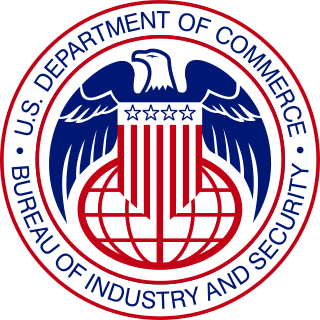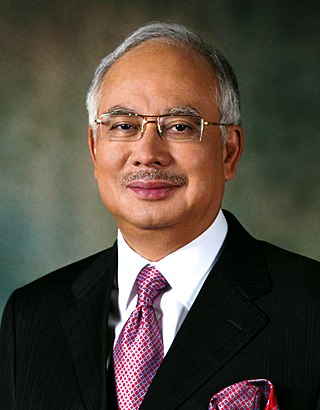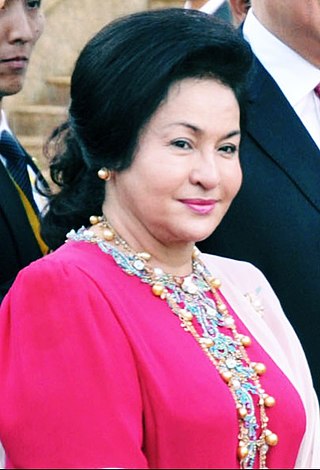Arms control is a term for international restrictions upon the development, production, stockpiling, proliferation and usage of small arms, conventional weapons, and weapons of mass destruction. Historically, arms control may apply to melee weapons before the invention of firearm. Arms control is typically exercised through the use of diplomacy which seeks to impose such limitations upon consenting participants through international treaties and agreements, although it may also comprise efforts by a nation or group of nations to enforce limitations upon a non-consenting country.

The Chemical Weapons Convention (CWC), officially the Convention on the Prohibition of the Development, Production, Stockpiling and Use of Chemical Weapons and on their Destruction, is an arms control treaty administered by the Organisation for the Prohibition of Chemical Weapons (OPCW), an intergovernmental organization based in The Hague, The Netherlands. The treaty entered into force on 29 April 1997. It prohibits the use of chemical weapons, and also prohibits large-scale development, production, stockpiling, or transfer of chemical weapons or their precursors, except for very limited purposes. The main obligation of member states under the convention is to effect this prohibition, as well as the destruction of all current chemical weapons. All destruction activities must take place under OPCW verification.

A weapon of mass destruction (WMD) is a biological, chemical, radiological, nuclear, or any other weapon that can kill or significantly harm many people or cause great damage to artificial structures, natural structures, or the biosphere. The scope and usage of the term has evolved and been disputed, often signifying more politically than technically. Originally coined in reference to aerial bombing with chemical explosives during World War II, it has later come to refer to large-scale weaponry of warfare-related technologies, such as biological, chemical, radiological, or nuclear warfare.

The Bureau of Industry and Security (BIS) is an agency of the United States Department of Commerce that deals with issues involving national security and high technology. A principal goal for the bureau is helping stop the proliferation of weapons of mass destruction, while furthering the growth of United States exports. The Bureau is led by the Under Secretary of Commerce for Industry and Security.

Mohammad Najib bin Tun Haji Abdul Razak is a Malaysian politician who served as the sixth Prime Minister of Malaysia from 2009 to 2018. In 2020, he was convicted of corruption in the 1Malaysia Development Berhad scandal, one of the largest money-laundering and embezzlement scandals in history. He is the son of former prime minister Abdul Razak Hussein. Najib Razak was the chairman of the Barisan Nasional (BN) coalition from April 2009 to May 2018 and the president of the United Malays National Organisation (UMNO) from November 2008 to May 2018, which had maintained control of Malaysia's government with a parliamentary majority for more than sixty years until the coalition's defeat in the 2018 general election.

As the collapse of the Soviet Union appeared imminent, the United States and their NATO allies grew concerned of the risk of nuclear weapons held in the Soviet republics falling into enemy hands. The Cooperative Threat Reduction (CTR) program was initiated by the Nunn–Lugar Act, which was authored and cosponsored by Sens. Sam Nunn (D-GA) and Richard Lugar (R-IN). The purpose of the CTR Program was originally "to secure and dismantle weapons of mass destruction and their associated infrastructure in former Soviet Union states." As the peace dividend grew old, an alternative 2009 explanation of the program was "to secure and dismantle weapons of mass destruction in states of the former Soviet Union and beyond". The CTR program funds have been disbursed since 1997 by the Defense Threat Reduction Agency (DTRA).
The Internal Security Act 1960 was a preventive detention law in force in Malaysia. The legislation was enacted after the Federation of Malaya gained independence from Britain in 1957. The ISA allows for detention without trial or criminal charges under limited, legally defined circumstances. On 15 September 2011, the Prime Minister of Malaysia, Najib Razak said that this legislation will be repealed and replaced by two new laws. The ISA was replaced and repealed by the Security Offences Act 2012 which has been passed by Parliament and given the royal assent on 18 June 2012. The Act came into force on 31 July 2012.

The National Command Authority (NCA) is the authority responsible for safeguarding the national security of Pakistan through command, control and operational decisions regarding Pakistan's nuclear weapons programme.
Title VIII: Strengthening the criminal laws against terrorism is the eighth of ten titles which comprise the USA PATRIOT Act, an anti-terrorism bill passed in the United States one month after the September 11, 2001 attacks. Title VIII contains 17 sections and creates definitions of terrorism, and establishes or re-defines rules with which to deal with it.
Capital punishment in Malaysia is used as a penalty within it's legal system for various crimes. There are currently 27 capital crimes in Malaysia, including murder, drug trafficking, treason, acts of terrorism, waging war against the Yang di-Pertuan Agong, and, since 2003, rape resulting in death, or the rape of a child. Executions are carried out by hanging. Capital punishment was mandatory for 11 crimes for many years. In October 2018, the government imposed a moratorium on all executions with a view to repeal the death penalty altogether, before it changed its stance and agreed to keep the death penalty but would make it discretionary.
The arms industry of Russia, also known as the defense industry of Russia is a strategically important sector and a large employer in the Russian Federation. It employs approximately 3.5 million people nationwide and accounts for 20% of all manufacturing jobs in Russia. Total defense spending in Russia reached 7.5% of GDP in 2023.

The Royal Malaysian Customs Department ; is a government department body under the Ministry of Finance. RMCD functions as the country's main indirect tax collector, facilitating trade and enforcing laws.

Malaysia–Singapore relations refers to the bilateral relations between Malaysia and the Republic of Singapore, after the expulsion of Singapore from Malaysia in 1965 Malaysia and Singapore relations became very tense but two countries relations are turn into good relations. Singapore has a high commission in Kuala Lumpur and a consulate general in Johor Bahru, while Malaysia has a high commission in Singapore. Both countries are full members of the Commonwealth of Nations and ASEAN.
The military doctrine of Russia is a strategic planning document of the Russian Federation, representing a system of official state-adopted views on preparation and usage of the Russian Armed Forces. The most recent revision of the military doctrine was approved in 2014.
The economic policy of the Najib Razak government marked a shift away from the state-oriented economic programmes of previous Malaysian governments. Najib Razak's government introduced various policies to liberalise the economy during his premiership from 2009 to 2018. This included a New Economic Model, subsidy reforms, international free trade agreements and stimulus packages. However, in the later stages of his administration, Malaysia experienced an economic downturn and a depreciation of the Malaysian Ringgit due to the 1Malaysia Development Berhad scandal (1MDB).

Rosmah binti Mansor is the second wife of former Prime Minister of Malaysia, Najib Razak. Like her husband, she was implicated in the 1Malaysia Development Berhad scandal (1MDB). On 1 September 2022, she was found guilty of corruption in relation to a school electricity project, fined $303m and sentenced to ten years imprisonment.

The Ministry of Investment, Trade and Industry, abbreviated MITI, is a ministry of the Government of Malaysia that is responsible for international trade, industry, investment, productivity, small and medium enterprise, development finance institution, halal industry, automotive, steel, strategic trade. The ministry has its headquarters located at Menara MITI on Jalan Sultan Haji Ahmad Shah in Kuala Lumpur and the building is also a component of Naza TTDI’s 75.5-acre KL Metropolis, a mixed development that is envisioned to be the International Trade and Exhibition District for Kuala Lumpur. It is one of the three ministries that has not moved to Putrajaya.

According to a 2013 public survey in Malaysia by Transparency International, a majority of the surveyed households perceived Malaysian political parties to be highly corrupt. A quarter of the surveyed households consider the government's efforts in the fight against corruption to be ineffective. Corruption in Malaysia generally involves political connections still playing an important role in the outcome of public tenders.

Soviet Nuclear Threat Reduction Act of 1991, 22 U.S.C. § 2551, was chartered to amend the Arms Export Control Act enacting the transfer of Soviet military armaments and ordnances to NATO marking the conclusion of the Cold War. The Act sanctions the Soviet nuclear arsenal displacement shall be in conjunction with the implementation of the Treaty on Conventional Armed Forces in Europe. It funds the Nunn–Lugar Cooperative Threat Reduction program.

The 1Malaysia Development Berhad scandal, often referred to as the 1MDB scandal or just 1MDB, is an ongoing corruption, bribery and money laundering conspiracy in which the Malaysian sovereign wealth fund 1Malaysia Development Berhad (1MDB) was systematically embezzled, with assets diverted globally by the perpetrators of the scheme. Although it began in 2009 in Malaysia, the scandal's global scope implicated institutions and individuals in politics, banking, and entertainment, and led to criminal investigations in a number of nations. The 1MDB scandal has been described as "one of the world's greatest financial scandals" and declared by the United States Department of Justice as the "largest kleptocracy case to date" in 2016.













